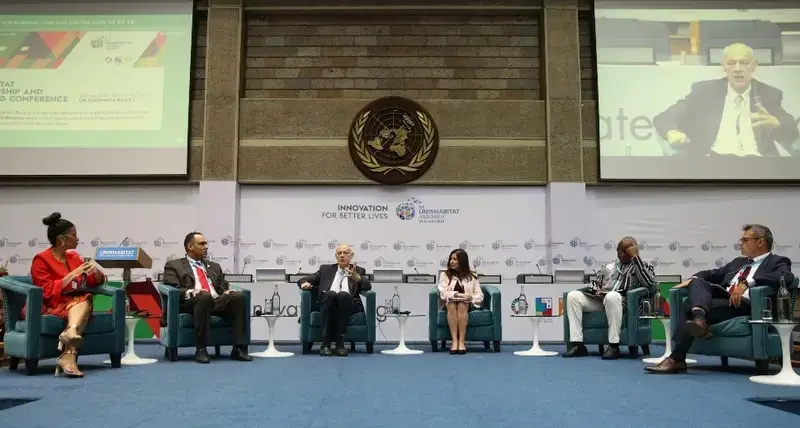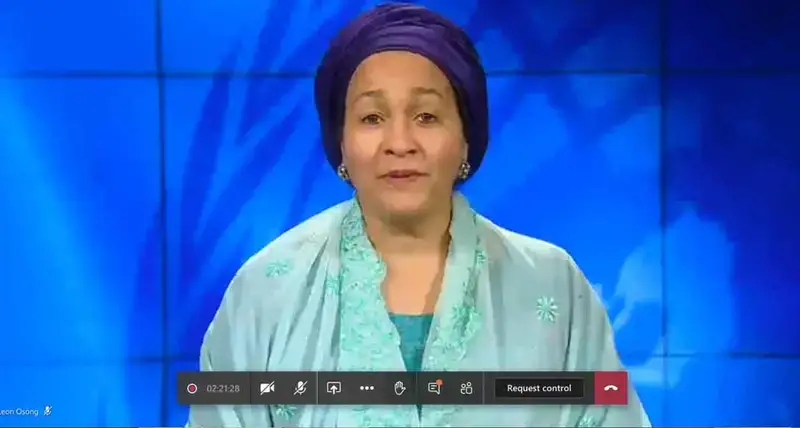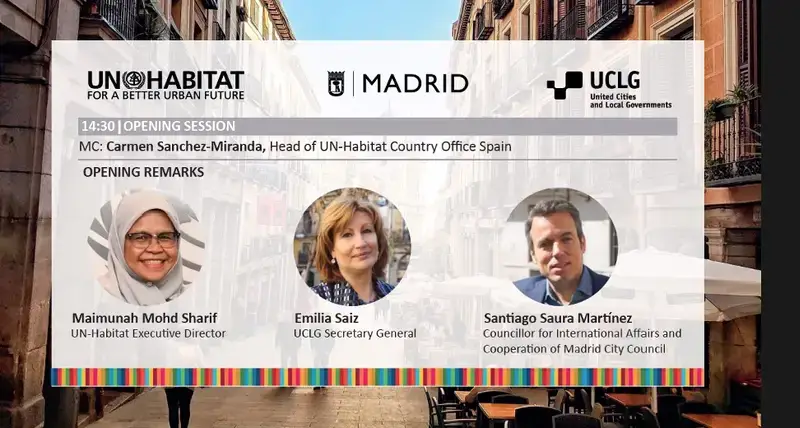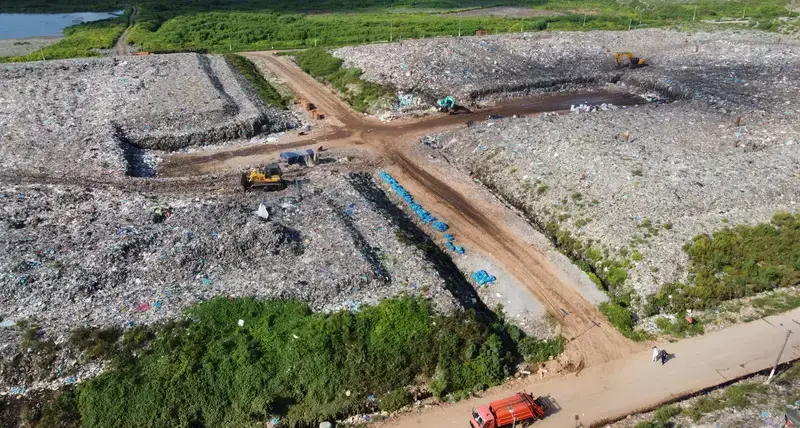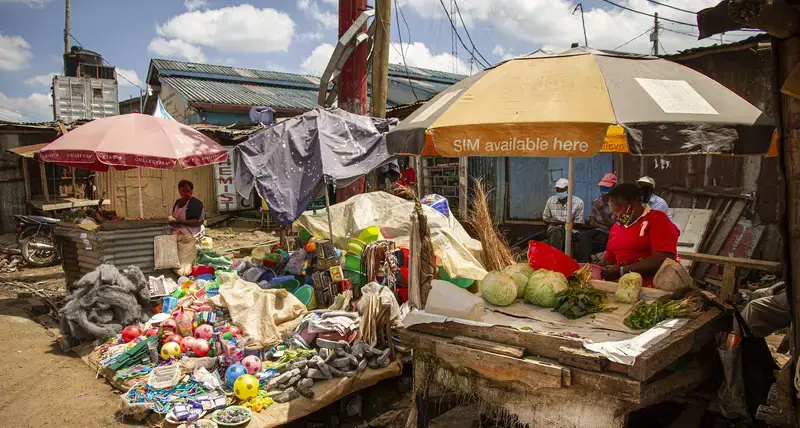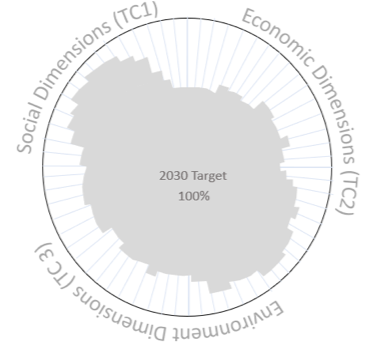Theory of Change
If cities:
- Have clearly defined, evidence-based development targets for 2030, and understand their baseline status of achieving these targets through urban data tools;
- Know the actions and investments needed to achieve these targets;
- Have the support needed to build key capacities (data management, policy, planning, governance, financing);
- Are able to design projects that have significant SDG impact;
- Are able to blende sources of public and private finance to ensure impact at scale;
- Have a means to measure the contribution of these actions and investments towards their targets; and can recognise progress in achieving SDGs; and
- Are able to share their knowledge and experiences with similar cities,
They will be equipped to address their challenges, improve the quality of life of their inhabitants and help drive the achievement of global sustainable development.
Programme Components
Visioning
SDG Cities starts with a visioning process initiated by the city authority that brings together stakeholders from civil society, business communities, representative neighbourhoods etc. to identify challenges and development priorities for the city. These together with national development priorities may inform the city’s prioritisation of SDG achievement by 2030. They can be mapped on the SDG City Wheel (see below), where SDG targets are clustered around the three transformative commitments of the New Urban Agenda:
- Sustainable urban development for social inclusion and ending poverty;
- Sustainable and inclusive urban prosperity and opportunities for all; and,
- Environmentally sustainable and resilient urban development.
The centre of the wheel marks 0% achievement and the rim marks 100% achievement. City specific planned achievement of SDG targets by 2030 can be mapped on this wheel and will provide a unique profile representing the city’s development aspiration.
Baseline Assessment
The SDG City Assessment and Measurement Tool will establish a baseline on the city’s current achievement of SDGs. This baseline will enable cities to undertake Voluntary Local Reviews. When mapped on the SDG City Wheel against the city’s target profile, gaps to be filled to reach these targets will be identified.
Strategic Planning
Through an inclusive strategic planning process, the analysis of gaps will inform interventions needed to reach targets. These can be categorised into four baskets.
- Basket 1: Enablers; e.g. plans, governance set-up, regulations, municipal financing instruments, land management systems etc.
- Basket 2: Capacity gaps to be addressed; e.g. revenue collection and public financial management, solid waste management, land management, urban planning etc.
- Basket 3: Public Infrastructure; e.g. basic services – water, electricity, lighting, solid waste management, public transportation, public space, affordable housing, education and health facilities.
- Basket 4: Economic initiatives; e.g. tourism investments, business districts, industrial parks etc.
Each intervention will be analysed to ascertain the extent to which it contributes to achieving the city’s SDG targets and its cost effectiveness.
Capacity Support and Technical Assistance
SDG Cities will provide through UN-Habitat, UN and other partners support in building city capacities in key areas of policy, planning, governance and local financing. Each city will be encouraged to establish an urban lab that draws together local academics and practitioners. Using the city development strategy as a starting point, the lab will develop projects (Basket 3 and 4) that would contribute to implementing the cities’ development strategies and accelerating SDG achievement. By networking participating labs, global experiences sharing and advisory to cities can be made possible.
Leveraging Finance for public infrastructure and economic initiatives
SDG Cities will support the financial analysis of these impact projects and ascertain the most effective financing strategy - often blending public and private sources of finance for largescale impact. It will also identify financing risks and provide strategies through which risks may be mitigated. SDG Cities will match-make city investment packages with sources of finance through a City Investment Platform (CIP) that will link investor-ready initiatives to a broad range of financiers.
Sharing knowledge for global impact
The World Urban Forum and existing experience sharing platforms will provide participating cities with a means to share knowledge, experiences and tools. It will enable cities with similar development profiles to form communities of practice, and by harvesting knowledge and data, will allow UN-Habitat to developed targeted normative advice to specific groupings of cities. It will also provide a means to broaden the participation of cities worldwide in SDG Cities programme.
The Programme expects to impact 1000 cities with a total population of over 1 billion people by 2030. It aims to achieve this level of scale by structured knowledge sharing between cities and systematizing support through the following instruments: SDG Cities Measurement and Recognition; Urban Labs; Impact Investment Simulation and City Investment Platform.
The Offer
The Offer for Cities
SDG Cities will enable cities to accelerate addressing key challenges and realizing development priorities in line with the Sustainable Development Goals, and measure success in doing so.
The Offer for Investors
SDG Cities will ensure a continuous pipeline of assessed, de-risked, verifiable impact investment opportunities in cities worldwide, including in emerging and developing economies.
The Offer for Global Development
SDG Cities harnesses the potential of urbanization to accelerate the achievement of the global Sustainable Development Goals.
Get Involved
Going to scale requires as cities all over the world to commit to the achievement of SDGs supported by an ecosystem of global partners that can deliver various parts of the SDG Cities Value Chain
City Leaders: Do your city want to advance the achievement of SDGs and so improve the wellbeing of people, and measure progress?
Consultancy Companies: As global demand grows for SDG Cities, does your company want to provide expertise? In what areas?
Academic Institutions and Data Management Companies: Does your company/ institution want or get involved in measuring city SDG performance?
Investors: Interested tapping into a pipeline of verified, SDG worthy, impact investments?
5. Experts
Dyfed Aubrey
Inter-Regional Advisor
Programme Development Branch, Global Solutions Division
